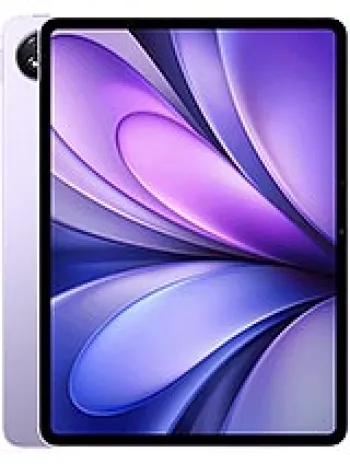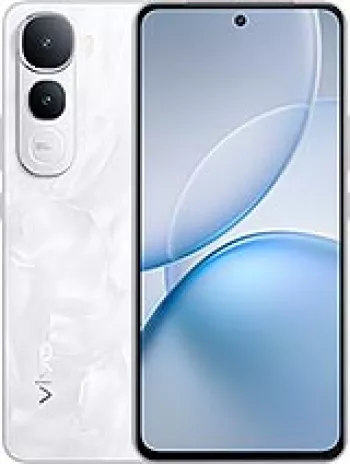
Overview
The Vivo Y27, launched in December 2014, represents an era of compact smartphones with essential features, aimed to cater to users seeking basic yet satisfactory performance capabilities. Despite being discontinued, the Vivo Y27 still holds a place in discussions about efficient and reliable budget smartphones from the mid-2010s.
Design and Build
When you first look at the Vivo Y27, its design speaks simplicity and elegance. It has dimensions of 136.9 x 68.1 x 7 mm, making it a slim device at just 7mm thick. The lightweight body of 137g ensures it is extremely portable and fits comfortably in hand. The device is equipped with a dual SIM capability, which was one of its significant selling points during its release. The White color gives it a classic look, complementing its minimalist design.
Display
The Vivo Y27 comes with a 4.7-inch IPS LCD screen, which offers a resolution of 720 x 1280 pixels. The screen-to-body ratio is approximately 65.3%, which was quite standard for smartphones at that time. The display provides crisp visuals and decent color reproduction, with a pixel density of around 312 ppi. Though it might not hold up against today's high-end smartphones, at the time, it delivered adequate clarity and performance for everyday tasks.
Performance and Software
Under the hood, the Vivo Y27 is powered by the Qualcomm MSM8916 Snapdragon 410 chipset, featuring a quad-core 1.2 GHz Cortex-A53 CPU, paired with an Adreno 306 GPU. These specifications place the Y27 in the entry-level category, designed to handle basic tasks such as browsing, social media, and standard applications without significant hiccups. The device initially shipped with Android 4.4.4 KitKat, which was a common operating system choice in 2014, offering a familiar and user-friendly interface alongside the Funtouch OS crafted by Vivo for additional features.
Memory and Storage
The Vivo Y27 offers 16GB of internal storage, which was fairly standard for devices in its class. The presence of a microSDXC card slot allows users to expand storage based on their needs, supporting additional storage for media and applications. With only 1GB of RAM, this device handles light multitasking but might struggle with more demanding applications or multiple apps running simultaneously.
Camera
Photography enthusiasts who prefer a basic point-and-shoot camera may find the Vivo Y27’s camera suitable. The primary camera is an 8 MP sensor with autofocus capabilities, accompanied by an LED flash to enhance low-light photography. The device can record videos in 1080p at 30fps, providing a decent quality for capturing moments. On the front, there is a 5 MP selfie camera that is adequate for video calls and simple selfies.
Battery Life
One of the key features of the Vivo Y27 is its 2260 mAh non-removable battery. While modest by today’s standards, it provided reliable battery life for the device’s hardware. The phone claims a stand-by time of up to 410 hours on both 2G and 3G networks, with a talk time of up to 13 hours on the same networks. This longevity is complemented by a music playback capability of up to 32 hours, making it a suitable companion for music lovers.
Connectivity
The Vivo Y27 supports various connectivity options including GSM, HSPA, and LTE, ensuring good network compatibility. It can achieve network speeds up to LTE Cat4 150/50 Mbps, facilitating satisfactory browsing and online activities. Furthermore, it comes equipped with Wi-Fi connectivity (Wi-Fi 802.11 b/g/n) and Bluetooth 4.0 with A2DP and EDR for improved wireless communication. The device also includes GPS, GLONASS, and BDS for precise location services, although it lacks NFC. Additionally, there is an infrared port for device control alongside traditional options like FM radio and microUSB 2.0 port for charging and connectivity.
Sensors and Other Features
The Vivo Y27 is equipped with a standard suite of sensors for general mobile activities; these include an accelerometer, a gyro sensor, a proximity sensor, and a compass. These features contribute to its functionality, supporting various applications and user interactions. The phone also has a 3.5mm jack, which ensures compatibility with traditional headphones and speakers.
Final Thoughts
Although discontinued, the Vivo Y27 showcased what budget smartphones were capable of mid-2010s, balancing performance, simplicity, and practicality. While it doesn't compete with modern giants in terms of specifications or features, it remains a testament to consistent and reliable smartphone manufacturing, offering core features that served the needs of many users effectively. Its lasting appeal is complemented by the nostalgia it holds for those who used it during its peak years, reminding us of the evolution smartphones have undergone and the basic foundations they still rely upon today.
Key Features of vivo Y27 (2014)
- Network Technology: Supports GSM, HSPA, and LTE
- Compact Dimensions: Slim profile with 7 mm thickness and a lightweight of 137 g
- Dual SIM Capability: Dual SIM (Micro-SIM, dual stand-by)
- Display: 4.7-inch IPS LCD with a resolution of 720 x 1280 pixels
- Operating System: Runs Android 4.4.4 (KitKat)
- Processor: Quad-core 1.2 GHz Cortex-A53 with Qualcomm Snapdragon 410 Chipset
- Expandable Storage: Dedicated microSDXC card slot
- Main Camera: 8 MP with autofocus and LED flash, capable of 1080p video recording
- Selfie Camera: 5 MP front-facing camera
- Battery Life: 2260 mAh Non-removable battery with up to 410 hours of standby time and 13 hours of talk time
- Audio: Includes loudspeaker and 3.5mm audio jack
- Connectivity: Wi-Fi, Bluetooth 4.0, GPS, GLONASS, BDS, FM radio, and infra-red port
- Sensors: Includes Accelerometer, gyro, proximity, and compass
Vivo Y27 (2014) Cons
- Outdated Operating System: Android 4.4.4 (KitKat), which may not support recent apps and security features.
- Limited RAM: Only 1GB RAM, which can affect multitasking and overall performance.
- Non-removable Battery: 2260 mAh battery cannot be replaced by the user easily.
- No NFC Support: Lack of NFC limits mobile payment options and other connectivity features.
- Low Internal Storage: Comes with only 16GB of internal storage, which may be insufficient for many users.
- Outdated Bluetooth Version: Bluetooth 4.0 is not the latest version, potentially affecting connectivity options.
- No Fast Charging: Lack of fast charging capability may result in longer charging times.
- Discontinued Status: The device is no longer being produced or supported by the manufacturer.


View Also
More Phones
All Rights Reserved +14300 Phones © Mobilawy 2025

























